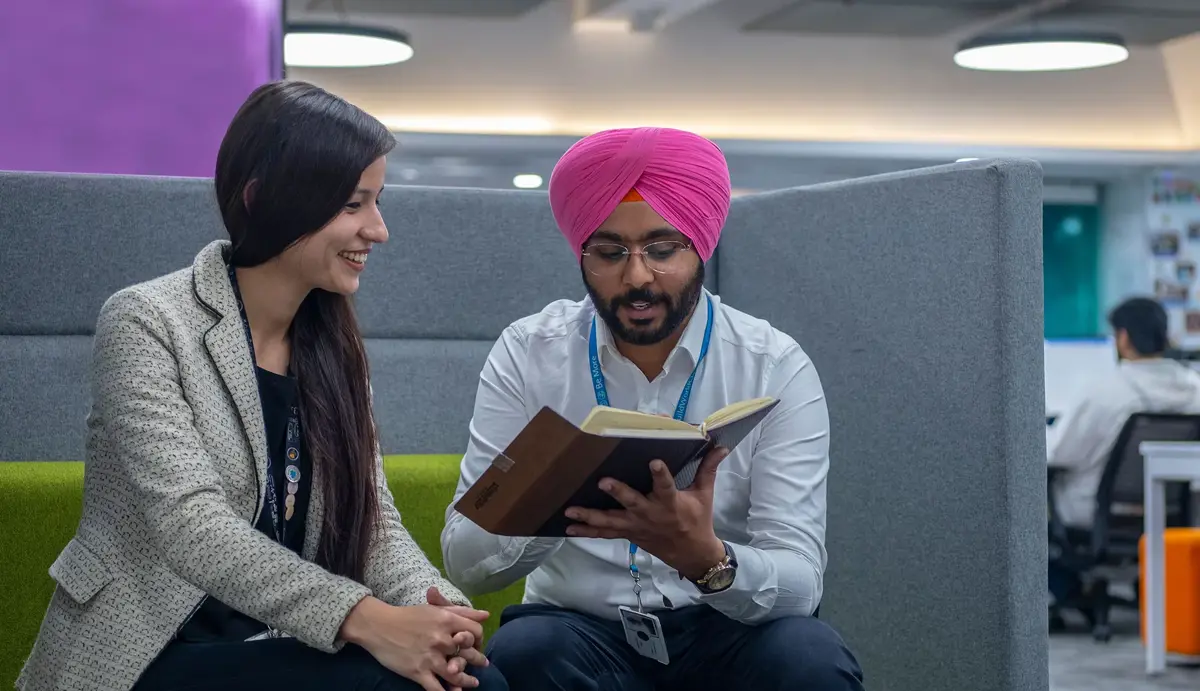CVs and job applications




Resources
We could think of a CV like being the shop window to someone’s professional profile. If a potential employer likes what they see they will probably want to interview the person. So it’s important that your young adult has an impressive CV to make sure they really stand out from the crowd of applicants.
Our Young People hub is full of free tips and advice to help your young adult make a great first impression and increase their chances of landing that all important interview.
- Our list of ‘CV must-haves’ and short film introducing all things CVs can be accessed here and is a great starting place.
- They could then check out our CV builder tool to get creating.
- Once your young adult has had a go at making their own CV, the next step is to make it stand out. Tailoring your CV can help them adapt their CV to suit different jobs to really grab the employer’s attention
Conversation
Once your young adult has had a chance to look at the pages, you can use the following questions to have a chat around CVs.
- Why do you think CVs are used in job applications?
- What’s the importance of having a good CV?
- Can you name any ‘dos’ and ‘don’ts’ when writing your CV?
- ‘Do’s’ include check spelling, get someone to check it, use short descriptive sentences
- ‘Don’ts have any gaps, use unprofessional fonts or colours, be too wordy
- How can you include hobbies to demonstrate core transferable skills? And what could you be doing now to develop certain skills which could help with future applications? A few examples:
- You are part of the netball team so you have strong teamwork skills.
- You help arrange a monthly book club so you have strong organisational skills.
- You volunteer at a local charity shop at the weekends so you have good communication skills.
- Have you thought about setting up a LinkedIn profile? What might be the benefits of doing this? For example, some employers used LinkedIn to recruit, and they may use it to find out more about applicants ahead of an interview.
- Have you heard of other applications methods such as assessments? There are a range of practice tests you can take online such as our LifeSkills online assessments which some recruiters use for their application process.
Resources
We could think of a CV like being the shop window to someone’s professional profile. If a potential employer likes what they see they will probably want to interview the person. So it’s important that your young adult has an impressive CV to make sure they really stand out from the crowd of applicants.
Our Young People hub is full of free tips and advice to help your young adult make a great first impression and increase their chances of landing that all important interview.
- Our list of ‘CV must-haves’ and short film introducing all things CVs can be accessed here and is a great starting place.
- They could then check out our CV builder tool to get creating.
- Once your young adult has had a go at making their own CV, the next step is to make it stand out. Tailoring your CV can help them adapt their CV to suit different jobs to really grab the employer’s attention
Conversation
Once your young adult has had a chance to look at the pages, you can use the following questions to have a chat around CVs.
-
Why do you think CVs are used in job applications?
-
What’s the importance of having a good CV?
-
Can you name any ‘dos’ and ‘don’ts’ when writing your CV?
-
‘Do’s’ include check spelling, get someone to check it, use short descriptive sentences
-
‘Don’ts have any gaps, use unprofessional fonts or colours, be too wordy
-
How can you include hobbies to demonstrate core transferable skills? And what could you be doing now to develop certain skills which could help with future applications? A few examples:
- You are part of the netball team so you have strong teamwork skills.
- You help arrange a monthly book club so you have strong organisational skills.
- You volunteer at a local charity shop at the weekends so you have good communication skills.
-
Have you thought about setting up a LinkedIn profile? What might be the benefits of doing this? For example, some employers used LinkedIn to recruit, and they may use it to find out more about applicants ahead of an interview.
-
Have you heard of other applications methods such as assessments? There are a range of practice tests you can take online such as our LifeSkills online assessments which some recruiters use for their application process.


